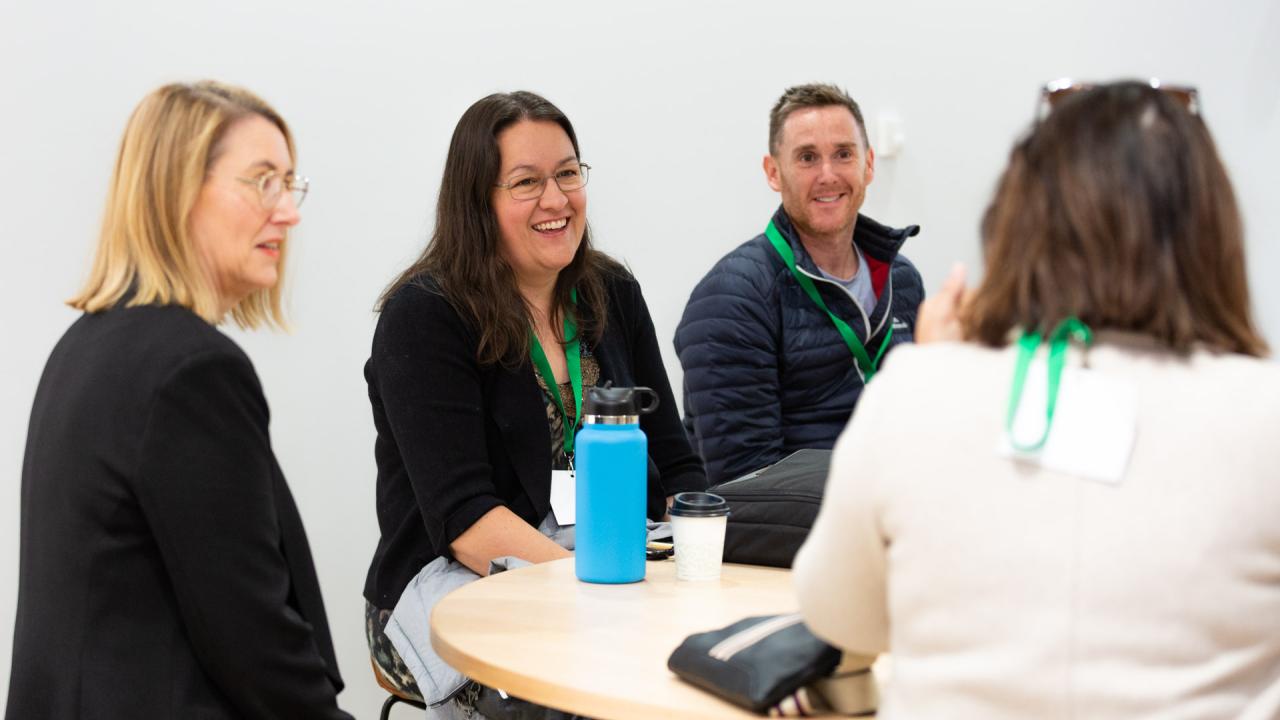05 Apr 2023
What teachers do during ‘the holidays’

Written by Dr Marcia Devlin AM | CEO, the Academy
Teaching is often considered an ‘easy’ job with ‘short hours’ and ‘lots of holidays’.
Yes, there are 12 weeks of school holidays each year – which sounds like a lot – but dig a bit deeper, and the reality of how teachers spend their time during holidays comes to light.
I spend a lot of time talking to teachers. I can tell you that none I have spoken to spend much time lying on banana lounges with cocktails in hand during the term breaks. The ones who are parents of school aged children themselves certainly don’t. But regardless of their family responsibilities, all teachers spend part of their ‘holidays’ (or term breaks as I prefer to call them) – working. Your child’s education relies on them doing so.
While recently there has been some necessary rest and recovery from 3 of the most difficult years in our living memory, teachers spend a lot of time during term breaks planning for the year, or term, ahead and preparing lessons.
One teacher I spoke to recently told me that she had spent her summer break reading books and watching films to assess their suitability for Year 9 English students. Considering some challenging texts and films for inclusion, including some on controversial topics, and thinking deeply about how to balance care and support for her students while pushing them to think critically about areas of social and political importance. Of course, how to help her students to develop their skills in analysis and argumentation was also central to her ‘holiday’ thinking.
Another teacher I know was scouring op shops for suitable dress-ups and props for his primary school kids, which were then carefully washed and stored for his students to act out their responses to literature.
A third bought packets of kitchen roll and tubes of toothpaste to use to teach kids the mathematical concept of estimation. She was planning to use these props with her students, to estimate how long the contents of a tube of toothpaste would be when squeezed out onto kitchen paper along the school corridor.
That teacher was also planning risk mitigation related to behaviour management and kids’ safety around the potential chaos of 24 primary school kids in a school corridor, wielding tubes of toothpaste... What could possibly go wrong?
A fourth teacher I spoke with was making cardboard prototypes of objects she wanted her class to construct as part of an integrated studies unit on mammals. I know this because she gave me the failed prototypes as a joke Christmas present. I am now a proud owner of cardboard whale and elephant (at least I think it’s an elephant – it's hard to tell…).
Some of this sounds like great fun on the surface, and teachers I talk to certainly aren’t complaining about spending term breaks doing this work, but it is work. Lessons – which teachers plan, prepare, and deliver all day every day – require expert knowledge and skills, and time, during ‘the holidays’.
Expert knowledge includes understanding how kids learn – and experienced teachers know that they all learn differently. Expert knowledge includes understanding how to set learning objectives at the appropriate level for 24 different kids, designing and matching learning tasks to the learning objectives, and aligning feedback and assessment for each child individually.
Expert skills include motivating and inspiring kids to connect with the learning material and experiences being offered to them. They include keeping kids engaged in learning, whether it be over a day or a period of time. They also include setting expectations and managing individual and group behaviour in a classroom, including when it is disruptive and providing positive and encouraging feedback on kids’ performance in ways that improve their learning. Expert skills include those needed when a kid – or several kids – have come to school hungry or tired or distracted or worried or anxious, or in any other state that may negatively affect their ability to concentrate and learn.
Which brings me to rest and recovery…
Teaching is a challenging job, and any teacher will tell you that recuperating is a huge part of term breaks. But the last 3 years have been significantly more difficult for teachers.
The difficulty and challenges of teaching 24 wriggly kids online during lockdowns cannot be over-stated. Teachers had to do all of what I have outlined above via a flat screen on a computer. If you tried to have a family gathering of any kind via zoom during the lockdowns, you’ll remember how hard it was and the headache you had at the end from trying to manage having only one person speak at a time…
While settling a class of excited 8-year-olds or enthusing a group of sleepy teenagers is hard enough in person, consider how challenging it was for teachers to do this online each and every morning, particularly as the pandemic and remote schooling wore on and on. Expertise in setting expectations, developing, explaining and implementing new rules, while monitoring and responding to 24 kids online were new requirements that every teacher in Victoria had to meet quickly, on top of all of the other requirements of them.
It was a wonder any of them came back from the first term break during the pandemic. But return they did, ready for more, having prepared thoroughly during the break. And they keep returning.
Teachers don’t have long holidays. They have short holidays, and some student-free time to prepare for the significant challenges of being teachers. So rather than implying that teachers are lazy with our casual comments about their easy job, short hours, and long holidays, we should be grateful for their ongoing work and thanking teachers for their service.






